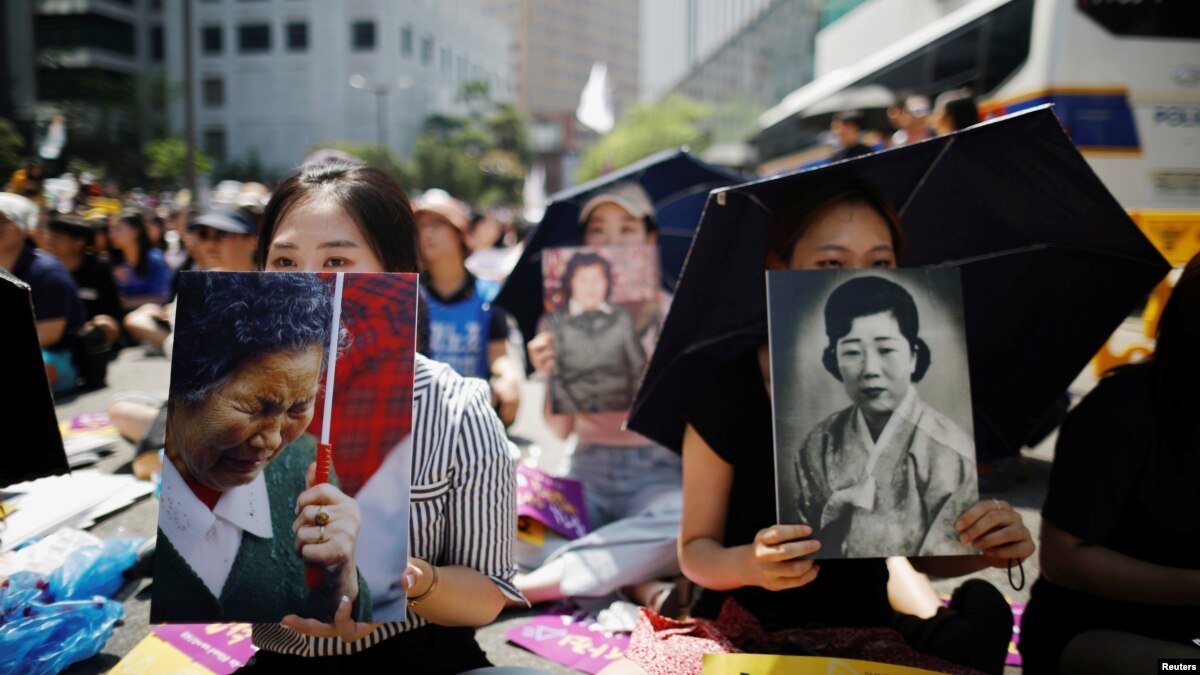
The Japan Times, an English-language newspaper that amended its description of “comfort women” and wartime forced laborers last year, apologized to its staff last month, but threatened legal action against anyone found leaking confidential information.
In a five-sentence note published last November, the paper said it would refer to Korean laborers simply as “wartime laborers” and would describe comfort women as “women who worked in wartime brothels, including those who did so against their will.”
The move polarized readers. Some saw it as an effort to whitewash Japan’s wartime history, while others celebrated the move as a way to correct foreign misinterpretations.
President apologizes to staff
In an email sent to the paper’s staff on Feb 28, Japan Times president Takeharu Tsutsumi apologized for causing “turmoil.” A Japan Times source shared the email with Reuters; it was verified by several other employees at the paper.
The president explained that the purpose of the style change was to “enable us to report controversial issues in a fair and neutral manner,” and denied that the paper had shifted its political views.
“Some European and American media have accused us with the narrative that ‘The Japan Times’ editorial direction moved to the right following the change in ownership.’ Based on groundless speculation, this is inaccurate,” he wrote, adding that on the other hand “Japan’s right-wingers seem to have welcomed this change, but by no means did we intend to reflect any right-wing views.”
Reuters called and emailed Tsutsumi for comment about the internal email. In response, a public relations representative for the Japan Times wrote in an email that it would not respond to queries about internal documents.
Reasons for revision
In January, Reuters published a story based on interviews with nearly a dozen sources at the Japan Times, as well as hundreds of pages of internal emails and presentation materials, that showed the revision was partly made to ease criticism that the publication was “anti-Japanese” and increase advertising revenue from Japanese corporations and institutions.
The issue of comfort women and Koreans forced to work in wartime factories and coal mines remains incendiary more than seven decades after the war.
Despite the backlash, Tsutsumi told staff there was no significant impact on the number of subscribers. In his email to staff last month, Tsutsumi also called the Reuters story “regrettable” and said it “coupled speculations with information taken out of context to promote a certain narrative.”
Leakers threatened
“According to the Reuters article, the company’s confidential materials and remarks made at the All Company Meeting appear to have been leaked,” he wrote, saying it was regrettable if any information had been divulged by employees.
“The act of leaking confidential information and the act of damaging the company’s reputation constitutes a violation of compliance,” he wrote. “If we learn the identity of the parties who leaked confidential information, we would have no other choice but to penalize them.”
Staff criticizes changes
Some of the paper’s staff have criticized the recent changes.
In an open letter published online last month ahead of the president’s email, Tozen, a labor union representing mostly foreign workers in several industries across Japan, and its Japan Times chapter demanded a full retraction of the style changes.
The paper’s local union, which has 15 members, has been in collective bargaining meetings with management over the issue.
Members of the Japan Times chapter declined to comment on the contents of the recent all company e-mail.
“Both changes were pushed through with total disregard for the input of knowledgeable writers and editors, with zero advance notice, and the changes also show a disturbing disregard for the mainstream historical record,” the paper’s union members wrote in the letter.

No comments:
Post a Comment